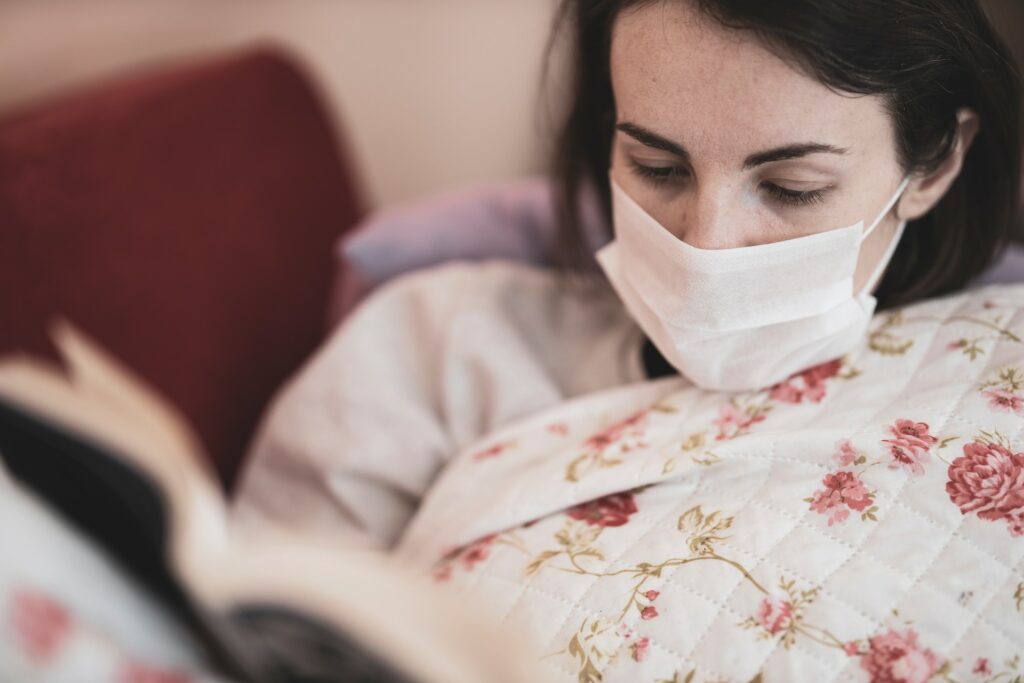


Do you have a blocked nose that makes it very difficult to sleep properly? Having to constantly wake up just to blow your nose. Is it dangerous to sleep with a blocked nose?
In this article, we’ll explore the causes of a stuffy nose, why it worsens at night, and the negative effects on your sleep quality and health.
We’ll also provide practical tips and solutions, from elevating your head to considering medication options.
If you’re tired of tossing and turning, read on to sleep better and breathe easier.
To sleep more comfortably with a stuffy nose, try elevating your head and using a saline nasal spray or rinse. Nasal congestion can make it difficult to breathe and sleep peacefully at night.
Elevating your head while sleeping can help relieve nasal congestion by reducing the swelling in your nasal passages. You can achieve this by using a wedge pillow or stacking up a few pillows to prop up your head.
Additionally, using a saline nasal spray or rinse before bedtime can help clear out the excess mucus and relieve the stuffiness. These home remedies can provide temporary relief and help you sleep better with a stuffy nose.
Another option to consider is using a nasal strip, which can help open up your nasal passages and promote better airflow.
If you’re wondering why you have a stuffy nose, several factors can contribute to nasal congestion. Understanding the causes of a stuffy nose can help you find ways to sleep better with a blocked nose at night. Here are some common causes:
Respiratory infections, allergies, and irritants like tobacco smoke and alcohol can all contribute to nasal congestion. Identifying the specific cause of your stuffy nose can help you find the most effective treatment and sleep with a stuffy nose. By addressing these underlying causes, you can improve your sleep and overall well-being.
Having a stuffy nose can be particularly challenging at night because it often worsens when you lie down. The congestion at night can greatly affect your sleep quality and make it harder for you to breathe comfortably.
There are several reasons why a stuffy nose is worse at night. Firstly, when you lie down, the nasal congestion worsens due to the gravitational pull, causing increased blood flow and swelling of the nasal tissues. Additionally, acid reflux can irritate the nasal passages and lead to congestion. Your circadian rhythm also plays a role, as nasal congestion tends to worsen during the nighttime hours. Allergies to bedroom triggers like dust mites, mold, or pet dander can also contribute to nighttime congestion.
To improve sleep quality and relieve congestion at night, try sleeping with your head elevated, using a humidifier, and using saline nasal sprays or rinses to clear your nasal passages.

When you sleep with a stuffy nose, it can have negative effects on your overall sleep quality and respiratory health. This can be especially problematic if you’re already dealing with a cold or flu, allergies, or conditions like sleep apnea.
Here are some of the negative effects of sleeping with a stuffy nose:
It is important to find ways to relieve a stuffy nose and improve your sleep quality. Using a decongestant, nasal spray, or humidifier can help unclog your nasal passages and reduce the symptoms of congestion. If your symptoms persist, it’s advisable to consult a healthcare professional for further guidance.
To further improve your sleep with a stuffy nose, consider trying out these additional tips.

To prevent congestion and alleviate the symptoms of a blocked nose, it’s important to avoid triggers that can cause congestion. Here are some tips to help you avoid congestion-causing triggers:
If you are experiencing a blocked nose, using medications for congestion relief can provide much-needed relief. There are several over-the-counter options available that can help alleviate symptoms such as a runny nose and nasal congestion. Some common medications for congestion relief include antihistamines, nasal steroids, and decongestants.
Antihistamines are effective for treating allergies and can help with symptoms like a stuffy or runny nose.
Nasal steroids work by reducing inflammation in the nasal passages, which can help decrease mucus production.
Decongestants help reduce inflammation in the nasal passages, making it easier to breathe. Before using any medication, make sure to read and follow the instructions carefully.
It’s also important to consult a healthcare provider if you have any concerns or if your congestion persists for more than three weeks. Using medications for congestion relief can help improve your sleep and provide much-needed relief.
| Medication | Purpose | Example |
|---|---|---|
| Antihistamines | Treat symptoms of allergies, including a stuffy or runny nose | Claritin, Zyrtec |
| Nasal Steroids | Decrease nasal inflammation and reduce mucus | Flonase, Nasonex |
| Decongestants | Reduce inflammation in the nasal passages | Sudafed, Afrin |
In conclusion, sleeping with a blocked nose can be frustrating and uncomfortable, making it harder to get a good night’s sleep. It can have negative effects on your sleep quality and overall health.
However, there are practical tips and solutions to help you sleep better despite having a stuffy nose. From elevating your head to considering medication options, you can find relief and breathe easier.
Don’t let a blocked nose ruin your sleep – try these tips and sleep soundly.